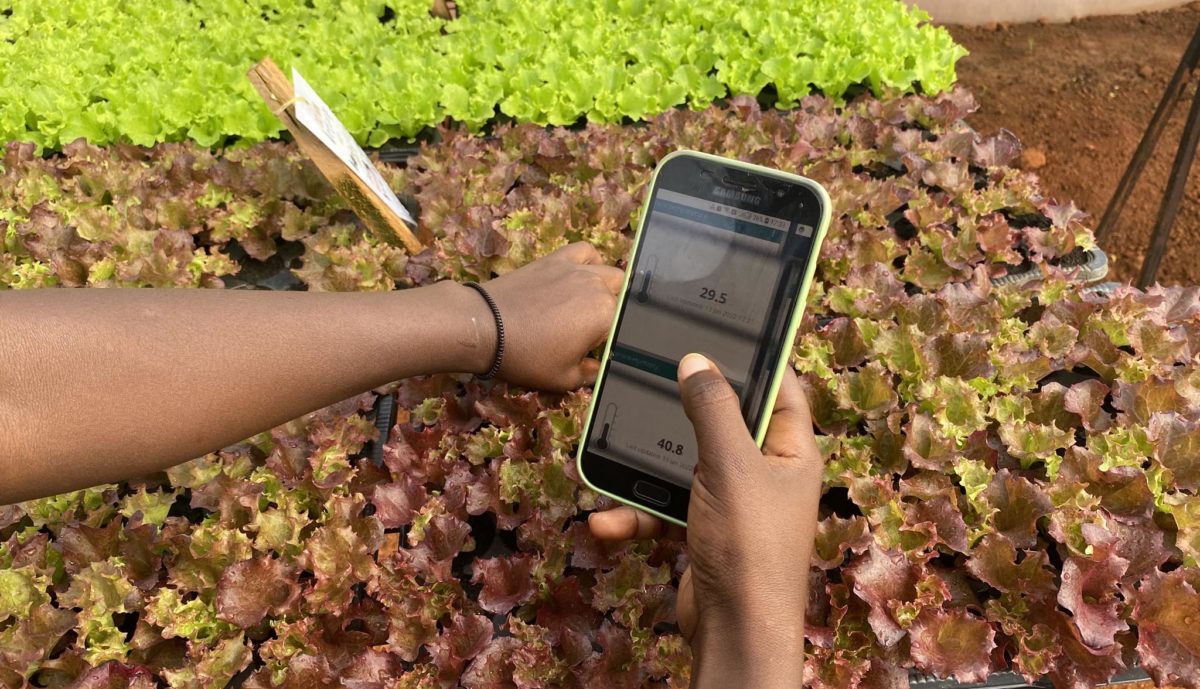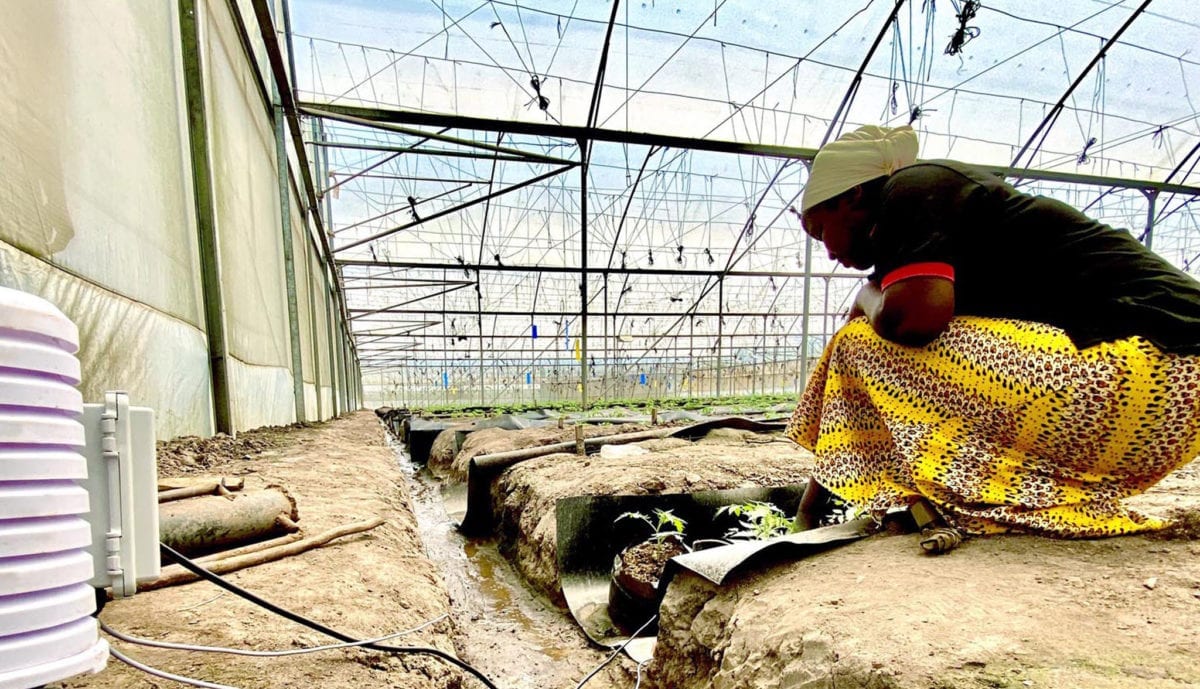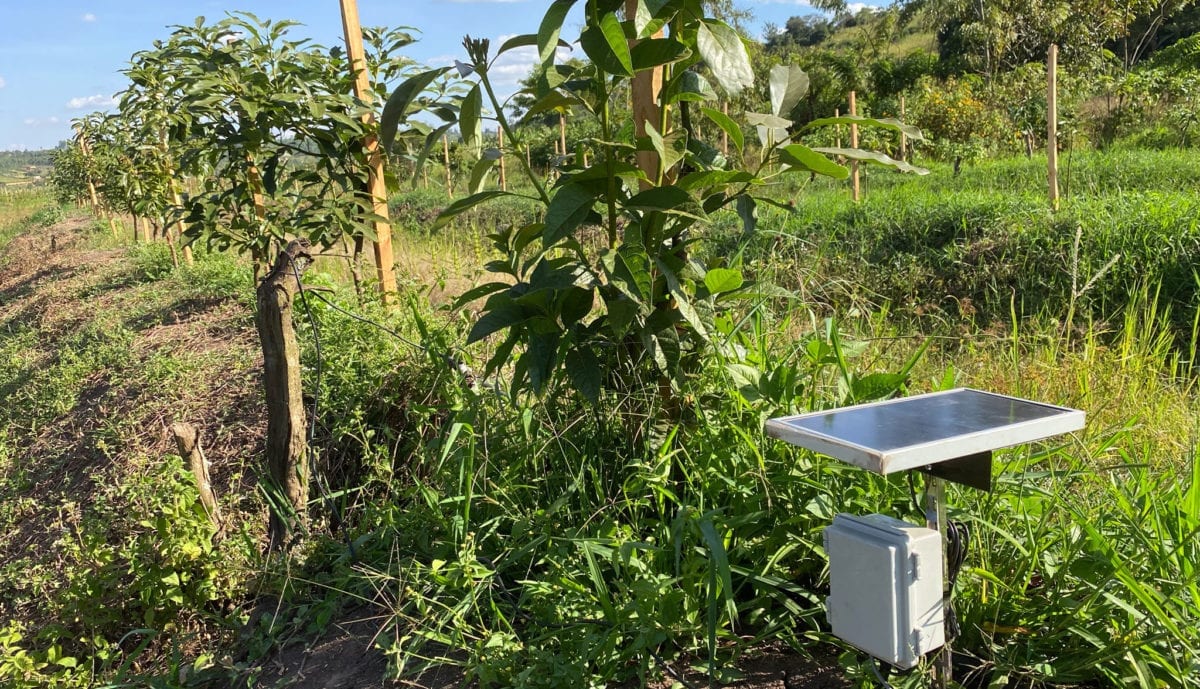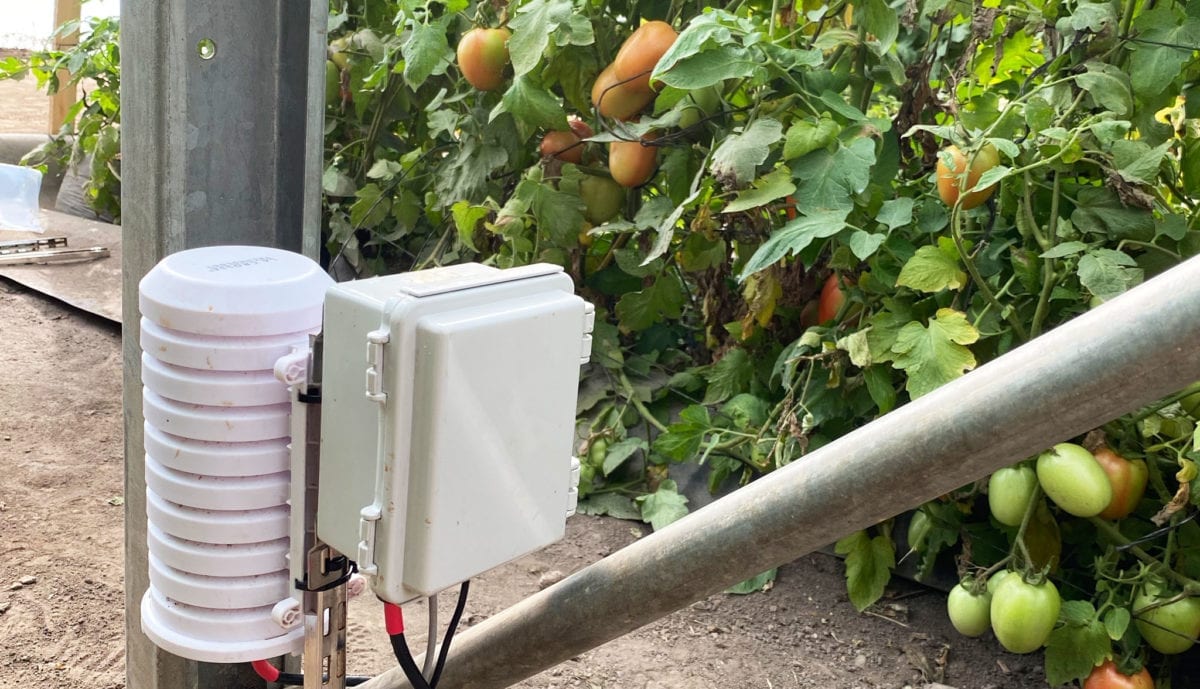Pride Farms is a leading market-driven agriculture company in Rwanda using professional, climate smart farm management and innovative technology to produce high value goods for both local and global markets.
Pride Farms focuses on organic farming, solar energy for irrigation, cold storage for continuous production and preserving quality, and regenerative agricultural practices and methods. They run their own farms and are starting to build a farming network of outgrowers to meet the demand from local hotels, restaurants and supermarkets as well as the export markets in Europe.
At the heart of Pride Farms operations is their seedling greenhouses which supply both their own farms as well as their outgrowers. The seedlings are the crucial first step in the production and the conditions within the greenhouse are paramount for growing strong and healthy seedlings.
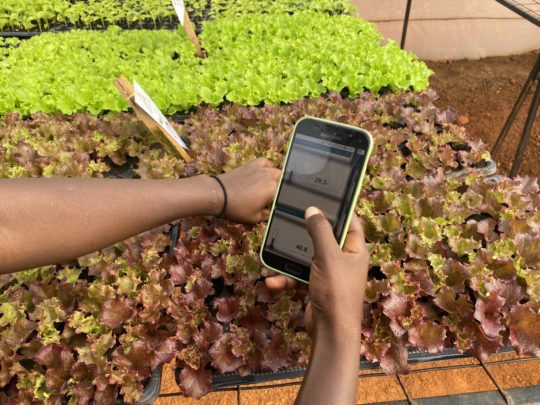
Pride Farms has deployed our IoT remote monitoring system to track conditions in their Kigali based seedling nursery greenhouse where they were experiencing challenges with the quality of the seedlings and the quantity successfully grown for transplanting. The data collected is helping them to control the temperature and humidity within the greenhouse.
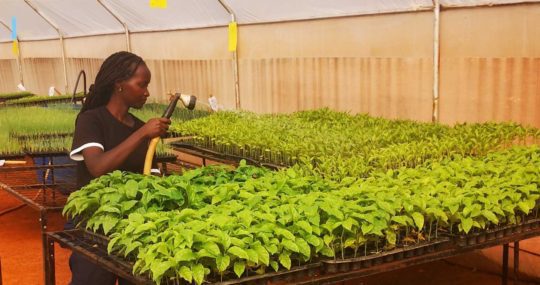
The data from our remote monitoring system is accessed by the farm worker responsible for the nursery. She uses her basic smartphone to view the data, allowing her insights in real-time that influence the way that she manages the growing conditions in the greenhouse. The data is helping her determine when to reduce the temperature or humidity for example by watering the floor in the greenhouse, when to start the irrigation in the morning to get the most impact from the water and avoid waste of water.

